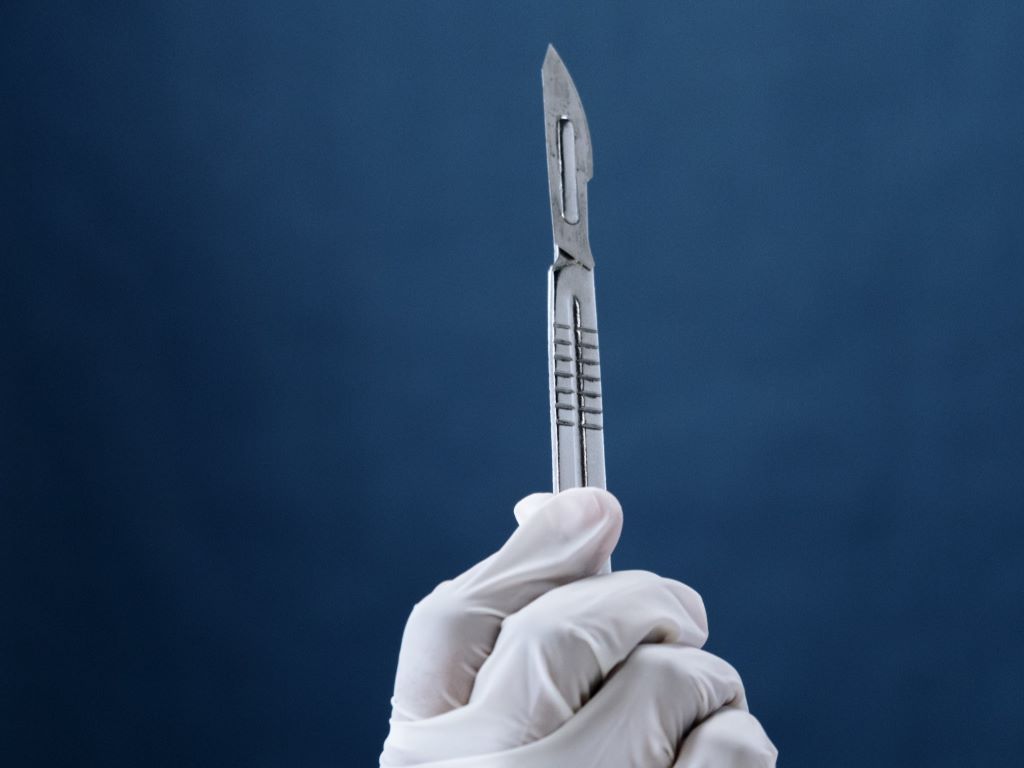
A new study published in BJU International has found that the conventional, versatile open surgery approach to removal of the lymph nodes behind the intestines for patients whose testicular cancer has not advanced beyond the abdomen is the gold standard of care for men in this condition.
Open surgery involves making an incision on the abdomen for a direct view and access to the surgical area. In the appropriate patients, cancer cure rates are excellent with this surgery alone due to continued clinician experience and refinement of technique, particularly at high-volume centres.
The study, led by urologist and health services researcher Clint Cary, MD, MPH, MBA, of the Indiana University School of Medicine and the Regenstrief Institute, was conducted using information from the on 165 patients with clinical stage I or II testicular cancer and no prior chemotherapy. One of the highest-volume testicular cancer treatment groups in the US, IU School of Medicine’s Department of Urology is among those groups setting the bar for both better surgical results and fewer negative outcomes such as infertility. Study benchmarks included low blood loss, short hospital stay and rare major postoperative complications.
Dr Cary notes that the paper, which includes analysis of risk factors for complications, clearly indicates that prior to treatment, men and their families should have conversations with their local urologist about their experience level across risk factors, such as high body mass index (BMI), as well as have detailed discussions of complication rates. He adds that both patients and clinicians can use the findings of this paper as a bar for comparison as they make choices.
“In my clinical role at Indiana University in the operating room, I frequently perform lymph node dissections for men with a lower burden of metastatic cancer who have not had chemotherapy or may never receive it for this cancer. In my complementary role as a Regenstrief Institute health services researcher, I study the impact of clinical decisions,” said Dr Cary. “For this study, I wanted to know that this and other treatments I perform are making a difference and I want to know – whether we are continuing established treatments or introducing new approaches to surgery – how these decisions and the resulting care will impact patients’ quality of life and their cancer outcomes.
“This study is an example of how the benefit of providing clinical care and also being in a research environment enables us to learn from what we’re doing and to report it in a manner that is meaningful to both patients and physicians. We’re always looking for ways to improve upon surgical outcomes. Going beyond the scope of this paper, we are now expanding our work to begin a randomised trial comparing two surgical techniques for removing lymph nodes to understand if one is better than the other regarding postoperative recovery.”
The paper did not compare robot-assisted surgery with traditional open surgery, which may allow a more complete lymph node dissection. While robotic surgery in general offers potential benefits to both surgeons and patients, the authors note that the head to head comparison between these two approaches is limited due to small experiences with the robotic approach in testicular cancer.
The authors conclude that for patients undergoing removal of lymph nodes for testicular cancer and certainly more complex and challenging patients at higher risk of post-operative complications, the traditional open surgery remains the most effective approach and the gold standard.
Source: Regenstrief Institute

